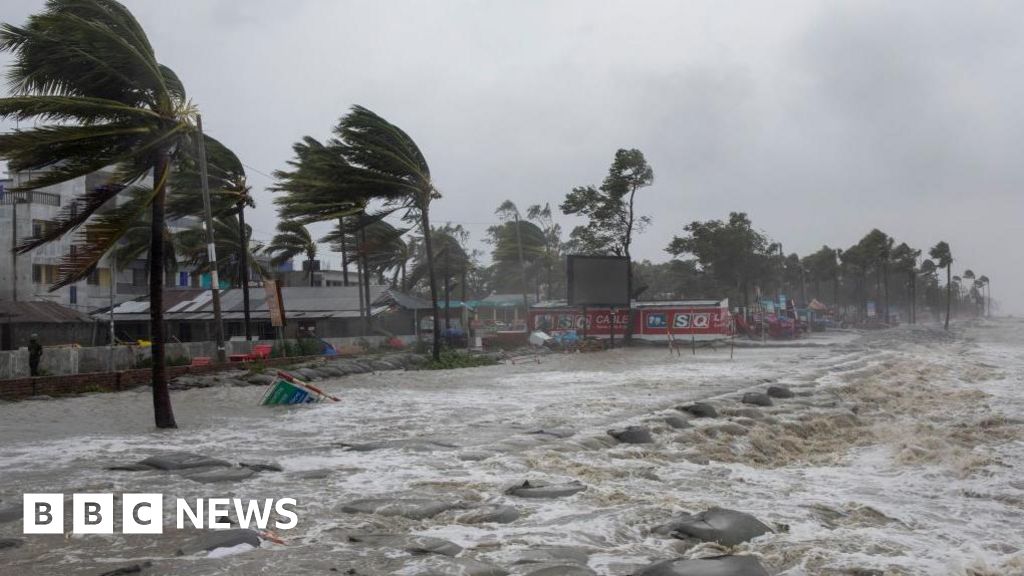At least 16 people have died after a cyclone crashed into coastal parts of India and southern Bangladesh.
The region was hit by strong gales of 110km/h, torrential rain and tidal surges that have left low-lying areas flooded.
Nearly a million people were evacuated as Cyclone Remal made landfall on Sunday evening.
According to local authorities, approximately 8.4 million people lived in the cyclone’s path, including 3.6 million children.
The storm passed through the Bangladeshi port of Mongla and the Sagar Islands of West Bengal, India, on Sunday, weakening the following day.
Bangladesh’s minister for disaster Mohibbur Rahman told AFP news agency at least 10 people were killed in the cyclone. Some died from drowning and some from being crushed beneath their collapsed houses.
“A total of 3.75 million people have been affected… 35,483 homes were destroyed by the cyclone, and another 115,992 homes were damaged,” Mr Rahman said.
In neighbouring India, Sumit Gupta, a senior official in the West Bengal state government, confirmed the deaths of at least six civilians, including three who had been electrocuted.
The cyclone destroyed thousands of homes, uprooted trees and damaged power lines. Strong winds blew the roofs off some tin and thatched houses, while mud huts were flattened.
Ahead of Cyclone Remal, nearly three million people in Bangladesh saw their electricity shut off to avoid accidents, ministry officials said. Authorities in West Bengal quoted by Reuters news agency said at least 1,200 power poles had been uprooted.
“We have had no electricity since night, my mobile battery will run out any time,” Rahat Raja from Bangladesh’s coastal district of Satkhira told Reuters.
A villager from Bagerhat in the country’s south told the BBC the cyclone had created food shortages.
“There are no vehicles available on the road. There are shortages of food also. All shops are closed since yesterday,” Mohammed Ali said.
Among the country’s affected areas is Cox’s Bazar in the southeast, where camps housing the nearly a million Rohingya refugees are at risk from landslides and flooding due to their flimsy temporary shelters.
The International Federation of Red Cross and Red Crescent (IFRC) in the Asia Pacific region said they warned people in the camps, and had trained volunteers on standby, ready to relocate people living in “high-risk areas”.
Save the Children said it had sent four emergency response teams to the country’s affected areas, including a medical team, to support recovery.
The charity’s country director Shumon Sengupta said the cyclone “shows yet again how vulnerable Bangladesh is to extreme weather events”.
Bangladesh is one of the world’s most vulnerable countries to the impacts of climate change, suffering extremes from heatwaves to flooding.
Cyclone Remal has been moving across the Bay of Bengal over the past few days, allowing authorities in both countries to prepare for its arrival.
In Kolkata, the capital of India’s West Bengal state, more than 50 flights were cancelled on Sunday. Flights have since resumed.
In May 2023, the Bay of Bengal was hit by the region’s most powerful cyclone in more than a decade, affecting thousands in Bangladesh and Myanmar.

